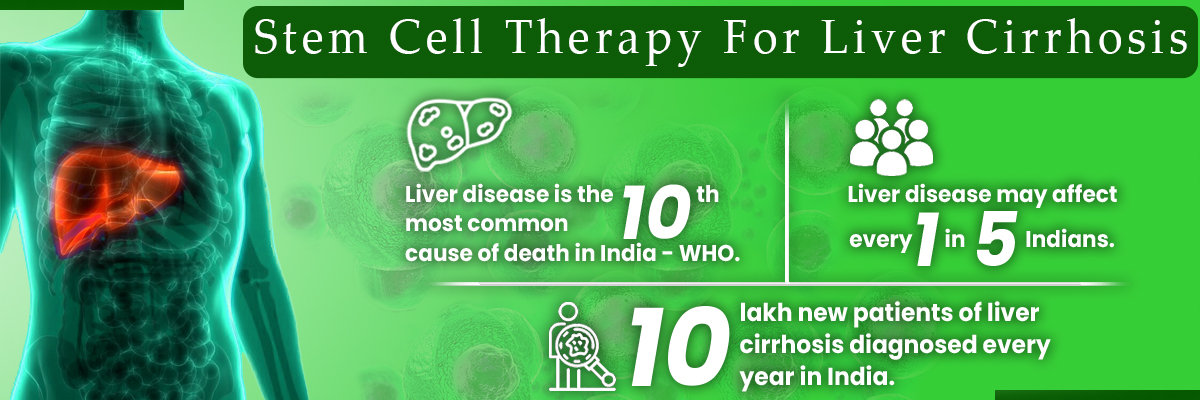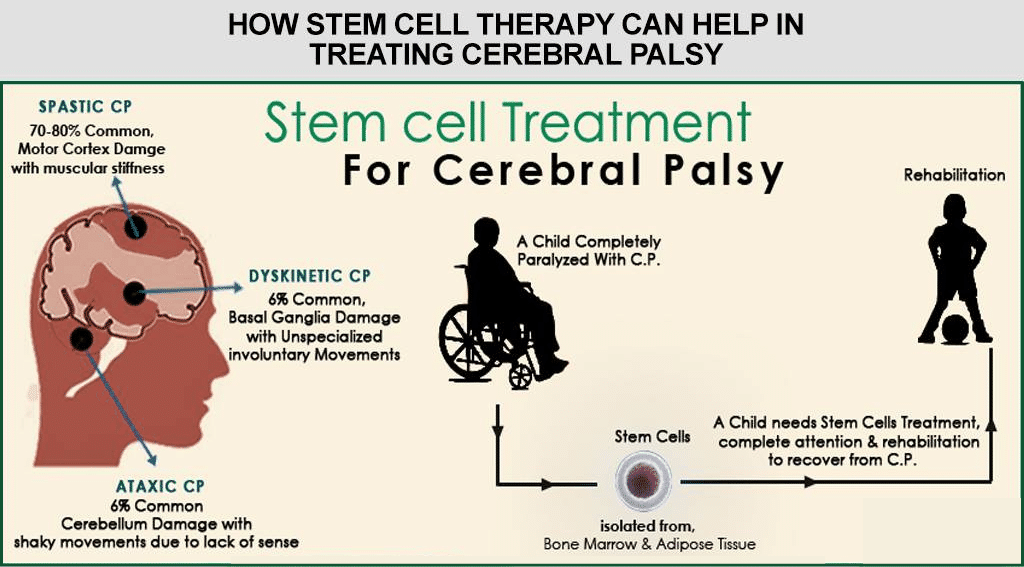Overview
Stem cell therapy has emerged as a promising treatment for various orthopedic conditions, including hip replacements. In India, the demand for innovative treatments like stem cell therapy is rising due to its potential to reduce recovery time and improve outcomes. According to a 2023 report, over 100,000 hip replacement surgeries are performed annually in India, with a growing number opting for stem cell treatment for hip replacement as a less invasive alternative. This article explores the effectiveness, costs, and success rates of stem cell hip replacement in India, providing a well-researched and comprehensive overview of the topic.
What is Stem Cell Hip Replacement?
Stem cell hip replacement refers to the use of stem cell therapy as a non-surgical, regenerative treatment for repairing damaged or degenerated hip joints. Instead of replacing the hip joint with an artificial implant, stem cells are injected into the affected area to promote the regeneration of cartilage and other tissues in the hip, potentially restoring function and alleviating pain.
Conditions Treated by Stem Cell Therapy for the Hip
Stem cell therapy can be effective for treating a variety of hip conditions, including:
- Osteoarthritis: Degeneration of the cartilage in the hip joint leading to pain and stiffness.
- Avascular Necrosis (AVN): A condition where the blood supply to the hip bone is reduced, causing bone tissue death and joint damage.
- Hip Labral Tears: Damage to the ring of cartilage that surrounds the hip joint, often causing pain and limited movement.
- Hip Bursitis: Inflammation of the bursae (fluid-filled sacs) around the hip joint, which can lead to pain and swelling.
Did you know that stem Cell Hip Replacement, also known as Hip Regeneration Therapy, is a procedure that uses stem cells to repair damaged hip joints and restore hip function and reduce pain?
Causes of Hip Replacement

It has several causes, the most common of which are:
- Osteoarthritis
- Rheumatoid arthritis
- Avascular necrosis
- Hip fractures
- Trauma or injury to the hip joint
Please Note: Stem Cell Therapy offers promising results in nerve repair for Neuropathy, representing a significant advancement in its management. Yet, it's crucial to recognize that these treatments are experimental and await FDA approval.
Is Stem Cell Hip Replacement FDA Approved?
The FDA's stance on stem cell therapy for orthopedic conditions is still evolving.
Current Status
- FDA Regulations: The FDA has approved certain stem cell treatments, but many procedures offered in clinics are considered experimental.
- Clinical Trials: Ongoing clinical trials aim to establish the safety and efficacy of these treatments.
What Patients Should Know
- Informed Decision: Patients should consult with their healthcare provider to understand the risks and benefits.
- Clinical Settings: Seeking treatment from reputable clinics and hospitals that comply with regulatory standards is crucial.
How Successful Is Stem Cell Treatment on Hips?
The success rate of stem cell therapy for hip replacement varies based on several factors, including the patient's age, overall health, and the severity of the hip damage. Most importantly, as the treatment is yet to be widely approved, the success rate is not fully acceptable. Studies have shown promising results, with many patients experiencing significant pain relief and improved mobility.
Success Rate and Clinical Studies
- Clinical Trials: Numerous clinical trials have demonstrated the effectiveness of stem cell therapy in treating hip osteoarthritis and other degenerative conditions.
- Patient Outcomes: According to a 2022 study, over 70% of patients reported a significant improvement in pain and function after receiving stem cell injections for hip osteoarthritis.
Factors Influencing Success
- Patient Selection: Younger patients with early-stage osteoarthritis tend to respond better to treatment.
- Cell Quality: The source and quality of stem cells used can impact the effectiveness of the therapy.
Transform your hip replacement experience with Stem Cell Therapy - reach out today to take control of your health and well-being!
Stem cells alone cannot entirely replace hip joints, but they can aid in tissue repair and reduce inflammation, potentially enhancing the effectiveness of hip replacement surgeries.
Can stem cells replace hip joints effectively?
Stem cells have significant applications in regenerative medicine and tissue regeneration. However, they are not yet ready to be used as stand-alone treatments for hip joint replacement. Currently, total hip replacement surgery remains the only effective treatment for severe hip joint degeneration.
Stem cells can be combined with other therapies, such as hip replacement surgery, to enhance recovery. While research on stem cell therapy for hip joint repair is still ongoing, there is not enough information yet to confirm its efficacy and safety. In India, regenerative medicine for hips is also being explored, but more studies are needed to fully understand its potential.
Discovering different stem cell types, such as those from bone marrow and fat tissue, is changing hip replacement treatment and bringing new ways to heal and repair.
Types of Stem Cells Used in Hip Replacement Therapy
Different kinds of stem cells, like mesenchymal stem cells, are used in hip replacement therapy because they can help fix damaged tissues and make healing happen.
- MSCs: Adult stem cells from bone marrow, fat, or umbilical cord, useful for hip repair.
- iPSCs: Reprogrammed cells with the potential for personalized hip treatments.
- Umbilical cord blood stem cells: Blood-derived cells showing promise for hip repair.
- ADSCs: Stem cells from fat tissue aiding in hip regeneration.
- Bone marrow-derived stem cells: Bone marrow cells benefit hip repair.
These stem cells offer potential hip repair but require more research for optimal use and safety.
Eligibility Criteria

To qualify for Stem Cell Hip Replacement, you typically need to:
- Diagnosis: Confirmed hip joint degeneration or damage.
- Severity: Moderate to severe symptoms despite conservative treatments.
- Health: Generally good health without uncontrolled medical conditions.
- Age: Typically adults or older individuals.
- Suitability: Suitable for stem cell therapy.
- Patient Preferences: Informed participation in treatment decisions.
A thorough evaluation by a specialist experienced in stem cell therapy and orthopedic surgery is crucial for determining eligibility and developing a tailored treatment plan.
Ready to explore Stem Cell Hip Replacement? Contact us now to see if you qualify and take the first step toward a pain-free future!
Stem cell hip replacement offers improved mobility but may pose infection and effectiveness risks.
Potential Benefits and Risks of Stem Cell Hip Replacement

The potential benefits and Risks of Stem Cell Hip Replacement include:
Potential Benefits | Potential Risks |
| Tissue Regeneration | Limited Evidence |
| Minimally Invasive | Incomplete Healing |
| Personalized Treatment | Infection Risk |
| Reduced Inflammation | Rejection or Adverse Reactions |
| Avoidance of Implants | Cost |
How Much Does Stem Cell Hip Replacement Cost?

The cost of stem cell hip replacement can vary based on several factors, including:
- The specific type of stem cell therapy used
- The extent and complexity of the procedure
- The healthcare provider or facility performing the surgery
- Any additional medical services or post-operative care required
On average, stem cell hip replacement costs $8,000 to $12,000 in India. However, depending on individual circumstances and treatment plans, costs can be significantly higher. Additionally, insurance coverage for stem cell hip replacement may be limited or unavailable, as this treatment is still considered experimental and may not be covered by medical insurance.
Is Stem Cell Better Than Hip Replacement?
Determining whether stem cell therapy is better than traditional hip replacement depends on various factors, including the patient's condition and treatment goals.
Comparative Analysis
- Invasiveness: Stem cell therapy is less invasive and involves fewer risks and complications.
- Recovery Time: Faster recovery compared to traditional surgery.
- Effectiveness: Effective for early to mid-stage osteoarthritis but may not be suitable for severe cases where the joint is extensively damaged.
However, we should remember that stem cell hip replacement has yet to get FDA approval; hence, the efficacy of the treatment compared to surgical hip replacement is not yet confirmed.
How Long Does a Stem Cell Hip Injection Last?
The longevity of stem cell hip injection results can vary. Generally, depending on individual factors, patients can expect relief from symptoms for several months to a few years.
Duration of Effectiveness
- Short-Term Relief: Some patients experience immediate relief, lasting from 6 to 12 months.
- Long-Term Benefits: Others may see benefits extending for 2 to 5 years, especially when combined with physical therapy and lifestyle changes.
Factors Affecting Duration
- Severity of Condition: More severe cases may require additional treatments for prolonged relief.
- Patient Compliance: Adhering to post-treatment care instructions can extend the benefits of the therapy.
Complementary Treatments Alongside Stem Cell Therapy for Hip Replacement
Explore different options! Stem cell therapy has variations for various hip problems, offering personalized solutions for better movement and comfort.
Stem Cell Therapy Variants for Different Hip Conditions

Stem Cell Therapy variants for various hip conditions include:
Osteoarthritis: These stem cells support the regeneration of bone and cartilage.
Avascular Necrosis (AVN): Stem cells accelerate the process of repair and increase the flow of blood.
Labral Tears: Stem cells protect cells from cartilage damage.
Hip Dysplasia: Stem cells, which in turn replace the injured cartilage and bone.
Inflammatory Conditions: Stem cell therapy brings down hip joint inflammation.
Post-surgical Healing: Stem cells are proven to speed up the healing processes after hip operations.
These variations of stem cell therapy target different hip conditions by promoting healing and reducing inflammation. However, more research is needed to confirm their effectiveness and safety.
Unlock the journey! Discover what's ahead with stem cell hip replacement, offering insights into the procedure for a smoother experience.
The Stem Cell Hip Replacement Procedure: What to Expect
During the Stem Cell Hip Replacement procedure, expect:
- Evaluation: Your doctor assesses your hip condition.
- Pre-treatment: You may need to prepare by fasting or stopping medications.
- Stem Cell Harvesting: Stem cells are collected from bone marrow, fat, or umbilical cord.
- Injection: Stem cells are injected into your hip joint using imaging guidance.
- Recovery: You may feel mild discomfort, but it usually resolves quickly.
- Follow-up: You'll have check-ups to monitor progress and adjust treatment if needed.
Remember to discuss any concerns with your doctor before the procedure.
Navigate the healing journey! Learn about post-treatment care after stem cell hip replacement, ensuring a smoother recovery process.
Post-Treatment Care: Recovery After Stem Cell Hip Replacement

After Stem Cell Hip Replacement, focus on:
Rest and Modify Activities: Take it easy first and include only moderate activities.
Manage Pain: You may need to rely on prescribed or over-the-counter painkillers when the situation arises.
Physical Therapy: Follow a structured workout with exercises to strengthen your hip and make you more flexible.
Attend Follow-Up Appointments: Try to observe your check-ups with your doctor to check the results.
Healthy Lifestyle: Eat a healthy diet, drink lots of clean water, and avoid smoking for a speedy recovery.
Be Patient: Let your body rest and abide by the doctor's instructions.
Watch for Complications: Be aware of any strange symptoms and call the doctor if that is the case.
Long-Term Care: Keep having visit sessions to oversee the process of your recovery and to identify any problems.
Enhance your healing journey post-Stem Cell Hip Replacement by contacting us for tailored recovery support today!
By following these steps, you can support your recovery after stem cell hip replacement.
Recovery time for hip stem cell therapy varies, generally lasting weeks to months.
What Is the Recovery Time for Stem Cell Therapy for Hips?
Discover the expected recovery timeline for stem cell therapy in hip treatments.
Immediate Recovery: The local pain present at the injection area subsides in a short time.
Short-Term Recovery: Then slowly add light activities over the week.
Medium-Term Recovery: Keep engaging in the physical therapy program to strengthen the hip's muscles and improve its range of motion.
Long-Term Recovery: The road to a full recovery might take several months to one year.
Explore the effectiveness of Stem Cell Treatment for Hip Replacement and its impact on improving mobility and comfort.
Efficacy of Stem Cell Treatment for Hip Replacement

Stem cell treatment for hip replacement shows promising efficacy in enhancing healing and mobility.
- Research ongoing: Stem cell treatment effectiveness for hip replacement is still being studied.
- Mixed results: Some studies show potential benefits like pain reduction and improved function, but findings vary.
- Factors matter: The type of stem cells used, the patient's condition, and hip damage severity influence outcomes.
- More research needed: Long-term effectiveness and safety aren't fully understood yet.
Explore the effectiveness of Stem Cell Treatment for Hip Replacement and take control of your mobility - contact us now!
Maximize healing! Explore complementary treatments with stem cell therapy for hip replacement.
Lets see complementary treatments to enhance the benefits of Stem Cell Therapy for Hip Replacement and optimise your recovery.
- Physical Therapy: Exercises to make your hip stronger and more flexible.
- Pain Medication: Medicine to reduce pain and inflammation.
- Healthy Diet: Eating well to help your body heal.
- Adjusting Activities: Changing how you do things to protect your hip.
- Walking Aids: Using devices like canes or braces for support.
- Heat and Ice Packs: Putting warm or cold packs on your hip to ease pain.
- Acupuncture: Using tiny needles in certain spots on your body to help with pain.
- Relaxation Techniques: Methods like deep breathing or meditation to reduce stress.
- Massage Therapy: Rubbing your muscles to relax them and improve circulation.
- Chiropractic Care: Adjusting your spine and joints to help your hip feel better.
Talk to your doctor before trying any of these treatments to make sure they're right for you.
Conclusion:
In summary, stem cell therapy could be a good way to treat hip problems, but we need more studies to be sure it's effective and safe. Other treatments like physical therapy and managing pain can also help get better. It's important to talk to doctors to figure out the best plan for each person.






